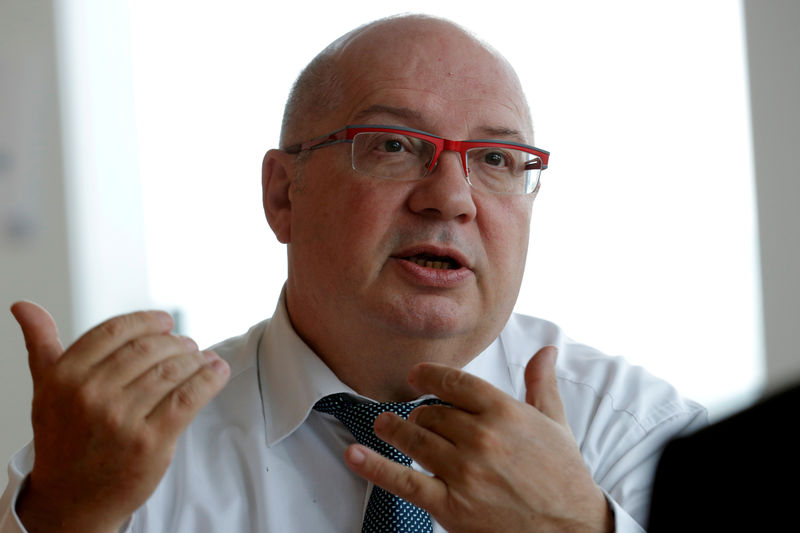By Bate Felix
PARIS (Reuters) - National decisions to shut down power generation capacity without wider co-ordination with other European states could put the continent's electricity system at risk, the president of France's RTE grid operator said on Thursday.
Since 2012, several countries have announced plans to close some coal, nuclear, or oil generators to curb carbon emissions, reduce the share of nuclear in the energy mix like in France, or phase out atomic energy like Germany and Belgium.
Francois Brottes said energy policy decisions made at a national level were having a continent-wide impact as countries increasingly depend on electricity imports from elsewhere in Europe to meet shortfalls, particularly during peak demand periods.
"Countries are making decisions about their electricity production capacity, such as closing down coal or nuclear, without always talking to one another," Brottes told Reuters.
"We are warning decision-makers that they are making decisions without consulting each other on the evolution of their energy mix," he said.
Counting on power interconnectors to import from other countries is no longer enough, Brottes said, citing the example of Belgium, which faced an unprecedented shortfall last winter.
Brottes said 15 European power network operators have signed a joint declaration to alert policymakers and highlight the risks ahead of European elections in May.
"We are in charge of making sure there are no blackouts, but we are not in charge of generation. We do not control production," Brottes said.
During a parliamentary hearing on April 9, Brottes told lawmakers that French electricity production has been hurt by its aging power plants, and the closure of around 13 gigawatts (GW) of thermal generation since 2012.
He said the margin of maneuver for transmission system operators was fast reducing.
France has 11 GW of interconnection with other European neighbors, but the capacity is never at a hundred percent because neighbors may need to use their generation capacity to meet their own needs during peak demand periods.
The planned closure of France's oldest nuclear plant in Fessenheim and its remaining coal power plants by 2022 mean 18 GW of generation will be gone, Brottes said during the hearing. New generation capacity was not being added at the same pace.
"Our neighbors are facing the same problem," he said during the hearing.
Britain has cut its power generation by 13 GW since 2012, and will close its coal power plants by 2025, while Germany plans to reduce its lignite power generation by 15 GW by 2025.
Italy plans to curb oil-fired generators by 15 GW by 2025, and Spain plans to close all its coal-fired power plants by 2030. The plants generated 13 percent of its electricity in 2018.
"It is easier to make decisions over capacity shutdown than to start up more generation capacity," added Brottes.
France, which plans to cut the share of nuclear generation in the electricity mix to 50 percent by 2035 from 75 percent today, was still lagging its European peers in developing renewables, although it was growing, he said.
Offshore wind projects that were announced in 2012 are still being held back by court appeals against the projects.
Utility EDF's Flamanville 3 nuclear reactor, currently under construction, could face new delays, while a gas power plant is also facing opposition, he said.

Brottes said the power system operators were calling for prudence and pragmatism.